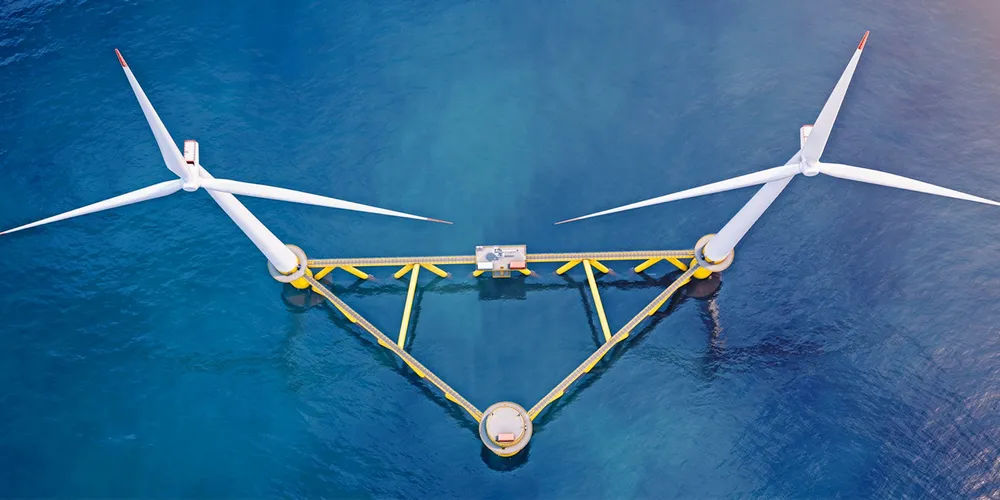Hexicon forges Greek floating wind power link-up with eye on 'best resource in Europe'
Technology pioneer forms joint venture with local player EAMAA to build projects in deep waters off southern European nation using innovative twin-turbine design

Offshore wind power pioneer Hexicon has forged a tie-up with Greek outfit EAMAA to explore building floating projects off the southern European nation.
Hexicon, which is developing its innotative twin-turbine deepwater concept in a portfolio of projects in Europe and Asia, said the joint venture (JV) was a “first step to start development” off the county’s thousands of islands, following Athens’ newly set-up legal framework for the sector.
“Greece has great potential for floating offshore wind power with some of the best winds in Europe,” said Hexicion CEO Marcus Thor. “This is an important strategic move for us. We see great opportunities in Greece as they embark on the journey from fossil-fuels to renewables.”
The JV, called Hexicon Power, will be headed up by Mikelis Chatzigakis, who served as a special advisor to the Greece’s conservative party now in government and former Greek minister of energy.
“We hope that Hexicon’s advanced technology in floating wind power will be a strong driving force in supporting Greece’s clean energy future,” he said.
“Our floating wind technology can produce high energy output with limited environmental impact. Greece has enormous opportunities in offshore wind and we are committed to assisting the country reaching its full potential.”
Hexicon Power’s board president will be Alexander Singer, an investment advisor with 30 years of experience in the energy sector, chiefly in renewables.
The company said the JV was aligned with Hexicon’s strategy as an “early-stage developer” in key markets globally, “where the company teams up with talented partners and local companies” and had “several” projects as immediate targets.
Rich with wind and solar resources – but without any offshore plant built to-date, Green Greek has advanced its onshore renewables build-out driven by one of the most ambitious energy transition goals in the EU, aiming to generate 60% of its electricity from non-fossil sources by 2030.